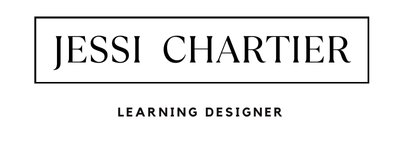David Hoffmeister, wrote a relatively objective piece on the proliferation of coding schools. The driving question of the article is how should higher education institutes react to these new and growing coding bootcamp academies? Having been designed curriculum and instructional for traditional high education models and now helping direct the curriculum and instructional model of Mobile Makers Academy, I can only have one answer: celebrate them.
Education isn’t The Highlander – there can be more than one [model]. Deep, meaningful learning doesn’t occur only in a classroom – it’s happening everywhere, across a life-time. A new mother doesn’t retreat to a classroom to figure out how to soothe her crying baby: she relies on learning from other mothers (mentors), support groups (peer learning), online blogs (self-directed learning), and her doctor (expert practioners). I encourage all higher education institutes to reflect: are you so ready to say, definitively, that people can learn only in your model? Are you really ready to look a plumber, who went through the local union’s apprentice program – which typically lasts 4 – 5 years with formal training – that her time spent doesn’t count as learning?
This isn’t about a new and radical form of education emerging, it’s about society embracing diversity of learning – in this case, training. The growth of these academies means that there are more and different opportunities for people to grow as humans and become productive citizens. If you’re against that, then I urge you to reflect upon what you believe education is.
Here’s a few myths of these academies debunked:
People aren’t getting a quality education
The educational model is apprenticeship-based, often rooted in constructivist and collaborative learning – which mimics the life-long learning that occurs within the field of software development. Gina Trapani, a programmer, says that “Good coders are a special breed of persistent problem-solvers who are addicted to the small victories that come along a long path of trial and error.” Thus, when students leave these academies, they are not only competent in the skills but also they have the know-how to be successful as a life-long learner in their field.
The model is structured around students practicing the trade, mastering the tools, and learning the theory as they go. This works in the field of software engineering because right now, it’s a vocation. The model is perfect for the need of that trade.
People aren’t getting a thorough, well-rounded education (aka the liberal arts and cultural literacy that comes with a four year degree)
We all want our citizens to be well-rounded, thoughtful humans. But I will ask: does this only happen in a four year degree? If you believe it does, what does this say about the role of art museums and cultural centers? If “culture” is only taught in a classroom, then why do such museums and cultural centers exist? I really encourage all of us in education to think about reconstructing our assumptions and see the integration of learning in the day-to-day as a victory of our field and as a way to explore new ways to teach “liberal arts”.
This model of education is a fad
This model has proven itself in the United States since the mid 1600’s. So…
The companies teach only those who can demonstrate a propensity to coding
Yes. That’s the whole point: find people who can learn the skills, who want to learn the skills, and then teach them those skills. With the demand for developers so high, the options – as a marketplace – are either to train current populations in these skill sets or to outsource. The academies focus on identifying those who want to become developers and who can become developers to build out the workforce that’s needed.
So, returning to the question: how should higher education institutes react these new and growing coding bootcamp academies? The workforce needs workers and traditional education isn’t providing them. So, the field hacked the system by adopting a tried-and-true method to the new needs of today. We should celebrate the fact that the field of education is growing to meet the needs of this society. We – as educators – can’t grow without diversity of models and changing demands. Without them, we would stagnate. So I say, cheers. Welcome to the field.
Moral of the Story: Education is a life-long, life-deep, and life-wide affair that we have with ourselves. We cannot possibly assume that all critical forms of education can fit in the box of a classroom, bootcamp, workshop, or book. We must embrace and embody the mindset that learning is ever-present, and comes in many forms.
